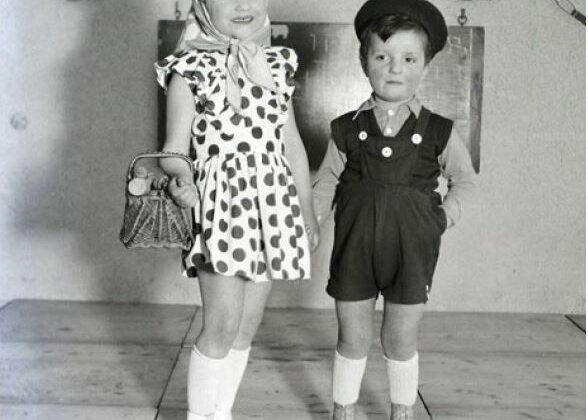The tragedy of the Holocaust destroyed Jewish families. The survivors had to reconstruct also their family ties. How did the orphaned, half-orphaned children cope with the new circumstances? What difficulties did their old-new families face? The topic of the volume “Children of the Holocaust: The Remembrance of Jewish Orphanages in Hungary” published in 2020, will be discussed at a one – day conference titled “Where do we go from here? Jewish Families in Hungary after WWII” organized by the Holocaust Memorial Center.
In addition to the grief of the families, the new beginning posed serious challenges to the survivors. in order to be able to continue their lives after their traumatic experiences, internal relations within their families had to be settled. Most of them were not merely free and independent individuals desperate to form new families, but also members of incomplete families: mothers or fathers who lost their spouse, with their children born before and born — or lost — during the war. Some young people gained strength from pursuing activities in youth movements. At times, they found their (non-Jewish) partners in left-wing youth organizations, such as in NEKOSZ or MADISZ, while wanting to get rid of all kinds of traditions, including the obligations of religion. Wealthy, bourgeois families, due to the expropriation of their property after the war, and the loss of their breadwinner fathers, had to rethink their strategies for the future.

© Fortepan / Hámori Gyula
Jewish children in Hungary, who were torn from their families during the war, lost their original identity or became uncertain of it when no adult relatives surfaced after the war. Some of the lectures will discuss the memory and mnemonics that facilitate the recollection of hidden memories. Finally, one paper will examine the photos depicting the Jewish new beginning, which had been taken for propaganda purposes commissioned by the Joint DC and the Jewish community.
SPEAKERS:
Viktória Bányai, hebraist, historian, Institute for Minority Studies, Budapest
Cohen Beth, sociologist, State University of California
Andrea Dunai, provenance researcher, Berlin
Kinga Frojimovics, archivist, historian, WWI, Vienna
Eszter Gombocz, teacher, John Wesley Theological College
András Lénárt, historian, sociologist, Holocaust Memorial Center Budapest
Júlia Szalai, sociologist, Member of the Hungarian Academy of Sciences,
Social Science Research Centre, Institute of Sociology
Judit Szapor, historian, McGill University
Kata Vörös, sociologist, Jewish Theological Seminary –
University of Jewish Studies, Budapest
INVITED CONTRIBUTORS:
László Csősz, historian, Hungarian National Archives
Ferenc Laczó, historian, Maastricht University
DATE: Thursday, May 20, 2021, at 2 p.m. (CET)
The conference will take place online, Hungarian-English translation will be provided.
Registration for the conference from May 3.
We are looking forward to seeing you all!
